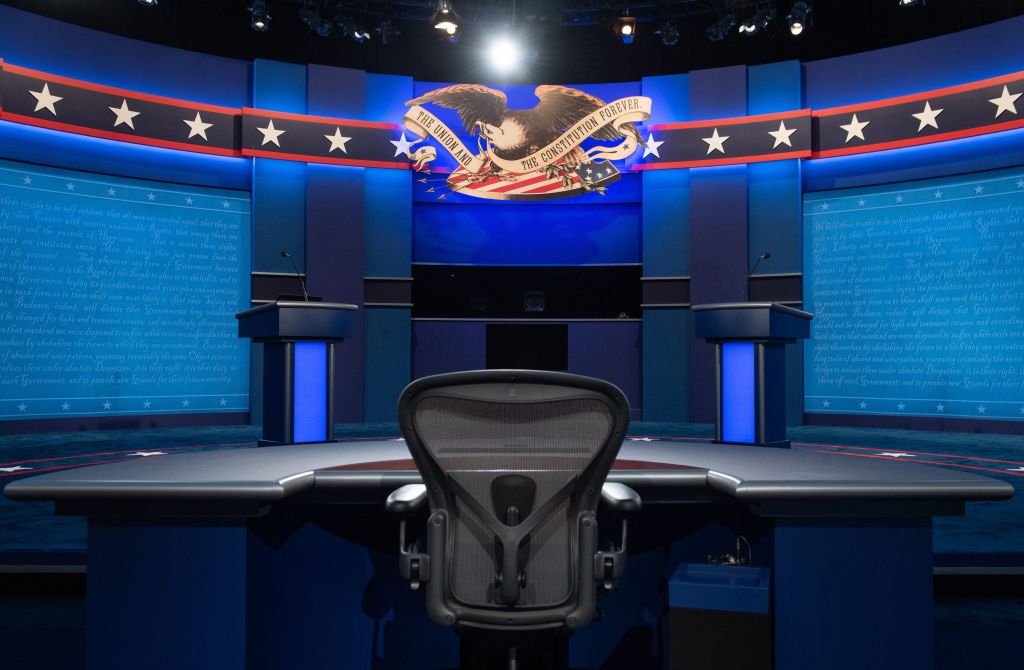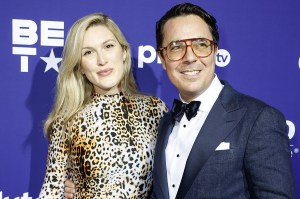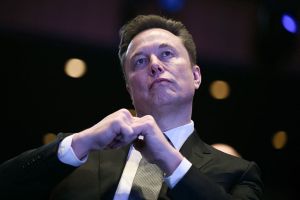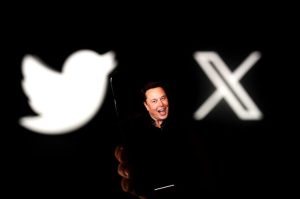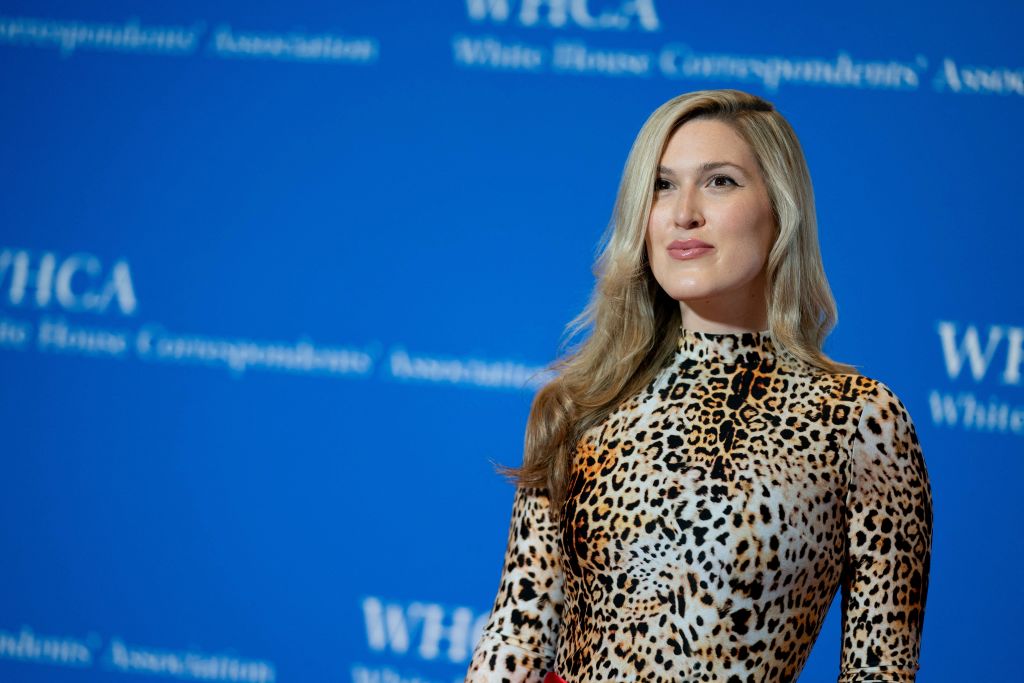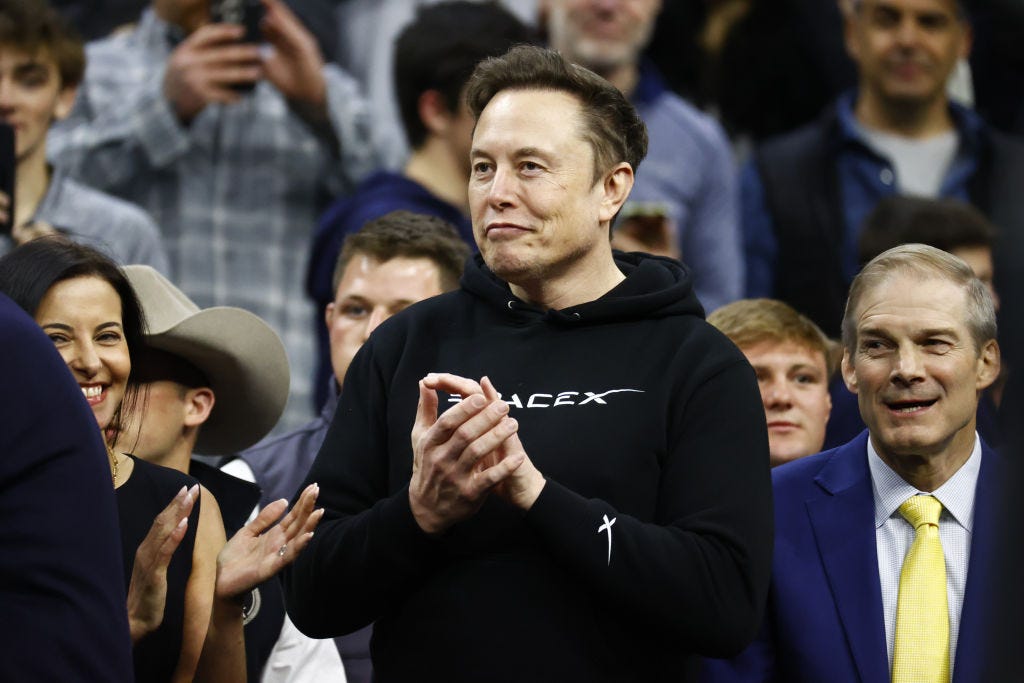By the time you read this, tech billionaires Elon Musk and Mark Zuckerberg may have beaten the living daylights out of each other. Earlier in the summer, Musk tweeted that he was “up for a cage fight” with Zuckerberg. The Meta CEO responded on Instagram Stories, “send me location.” “Vegas octagon,” suggested Musk, referring to the arena where UFC fights are held. Cue an avalanche of hype, some of it serious, much of it tongue-in-cheek, about the possibility of this plutocrat showdown.
The Spectator takes no house view on whether the jiu-jitsu-loving Zuckerberg or the barrel-chested Musk should be viewed as the favorite. But we will admit finding this approach to dispute resolution refreshingly old-school — dueling for the new Silicon Valley aristocracy.
It’s also a welcome antidote to the rise of the tedious “debate me, bro” tendency that has infected public life of late. In June, long-shot presidential candidate and prominent vaccine skeptic Robert F. Kennedy Jr. invited scientist Peter J. Hotez to a public debate on vaccines. Podcaster Joe Rogan offered to donate $100,000 to a charity of Hotez’s choice if he accepted. Around the same time, Florida governor Ron DeSantis and his Californian counterpart Gavin Newsom were touring the country challenging one another to debate. These debate-me bros are heavy on “bring it on!” bravado and light on concrete plans for actual argument.
The Spectator stands firmly in favor of actual, diligent debate, not just performative chest-puffing. At its best, debate can be illuminating — bringing the participants, and their audience, closer to the truth. But even when it falls short of that, a polite, good-faith exchange of ideas is a mark of civilization.
But debate is in trouble, including at the presidential level. The first debate of the Republican primary, scheduled for later this month, may take place without the race’s front-runner. Donald Trump is threatening to boycott the event because he thinks Fox News, whose anchors are set to moderate, hasn’t given him a fair shake. A debate without the candidate who’s thirty points ahead of the rest of the field is hardly worth having. “Not to be braggadocious but the debate will not be a very exciting one if I’m not there,” Trump said of his threat to skip the first bout. He’s right.
And it’s far from clear whether debates between the eventual nominee and his Democratic opponent will happen later in the cycle. Last year, the Republican National Committee withdrew from the Commission on Presidential Debates, alleging bias. If that dispute cannot be resolved, 2024 could be the first presidential election in almost half a century that does not feature the two candidates going toe to toe in a televised debate.
The irony of Trump possibly boycotting primary debates, maybe even passing on the chance to take on the chronically low-energy Joe Biden, is that his subversion of the debate format worked masterfully in 2016. Trump gave the audience what it wanted: not a serious exchange of ideas, but reality television-style insults and entertainment. Why would he miss the chance to put on another show?
Debate is also in trouble when it comes to its much younger (and much smarter) practitioners. A row flared up recently over high-school debate clubs. Former champions have lifted the lid on the way in which the National Speech and Debate Association has been hijacked by left-wing politics. Debate judges warn students against making conservative-leaning arguments — and mark down anyone who dares to deviate from progressive orthodoxy on a range of social issues. Censorship and appeals to identity politics are anathema to genuine debate — and too many of today’s high-school students are missing out on the benefits of rigorous, no-holds-barred argument as a result.
What, if anything, can be done to make debate great again — whether in the high-school classroom or in the presidential arena? First and foremost: we need to become more comfortable with being uncomfortable. Institutions like the NSDA must be open to arguments that judges and other students might disagree with. Moderators in Republican primary debates need to ask difficult questions that shed light on the differences between the candidates, rather than inviting them to parrot partisan talking points.
Second, we need to find a way to escape the hyperpartisan fantasies in which our political leaders too readily indulge — whether that’s fictions about the 2020 election or progressive paranoia about ubiquitous white supremacy, trans genocide and the like. Debate is an antidote to such delusions, but it is also undermined by them. Without a bedrock of shared values, disagreement gives way to name-calling and base tribalism.
Thankfully, and contrary to what you may have been told elsewhere, most Americans do still have a lot in common. A survey conducted by the University of Chicago in June found that nine in ten Democrats and Republicans agreed on the importance of core values such as the importance of personal responsibility, the rule of law and accountable government. That still leaves room for real differences of opinion on big issues, of course. But those differences come from a shared starting point. That’s the paradox of debate: without some common ground, meaningful disagreement is impossible. For all its opportunity for adversarial showmanship, debate, done properly, doesn’t drive people apart. It brings them closer together. And once we’re done debating, we can unwind by watching Musk and Zuckerberg try to choke each other out in the Octagon.
This article was originally published in The Spectator’s August 2023 World edition.



